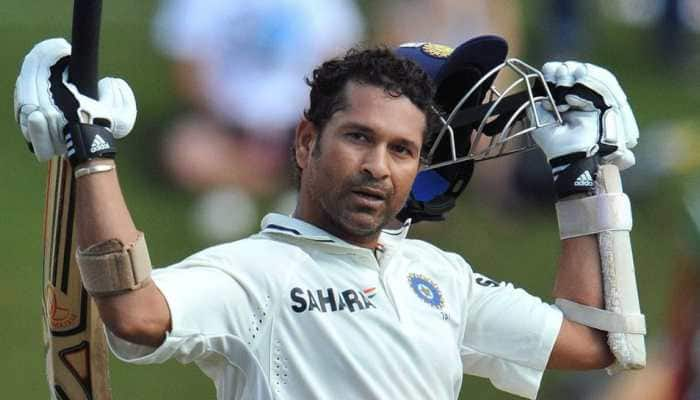Raghuram Rajan warns against 'euphoria' over India's fastest-growing economy tag
Cautioning against 'euphoria' about India being the world's fastest-growing economy, RBI Governor Raghuram Rajan on Wednesday said it still remains one of the poorest nations and has "a long way to go", as he sought to contextualise his controversial 'one-eyed is king' analogy.
Trending Photos
)
Pune: Cautioning against 'euphoria' about India being the world's fastest-growing economy, RBI Governor Raghuram Rajan on Wednesday said it still remains one of the poorest nations and has "a long way to go", as he sought to contextualise his controversial 'one-eyed is king' analogy.
"We are still one of the poorest large countries in the world on a per capita basis and have a long way to go before we reasonably address the concerns of each one of our citizens," Rajan said, adding that the current growth rate needs to be sustained for the next 20 years to ensure a "decent livelihood" for every Indian.
"The average Chinese citizen is over four times richer than average Indian," the outspoken RBI Governor said while referring to the frequent comparison between the two nations.
Stating that Chinese economy was smaller than India's in the 1960s but is now five times bigger, Rajan said, "Among the BRICS (group) we have the lowest per capita GDP".
Rajan's comments follow criticism by some union ministers of his recent remarks in the US that India being proclaimed as the 'bright spot in a gloomier world economy' was like "a one-eyed man being a king in the land of blind".
Stating that his comment was misunderstood as "the words and not their intent" were given more importance, the former IMF Chief Economist said, "As a central banker who has to be pragmatic, I cannot get euphoric if India is the fastest growing large economy".
Rebutting Rajan's remarks, Finance Minister Arun Jaitley had said any other country would be celebrating at 7.5 percent growth rate, while Commerce Minister Nirmala Sitharaman had said the RBI Governor should have used better words.
Rajan, however, said, "We can't get carried away by our current superiority in growth, for as soon as we believe in our own superiority and start distributing future wealth as if we already have it, we stop doing all that is required to continue growing. This movie has played too many times in our past for us to not know how it ends."
Underlining the need to change perceptions, he said a high growth rate can be delivered over a long term only by "implementing, implementing, and implementing".
"The sobering thought is we have a long way to go before we can claim we have arrived," Rajan averred, while addressing students at the convocation of the National Institute of Bank Management.
He, however, apologised to the visually-impaired people who were hurt by his use of this proverb.
"I do want to apologise to a section of the population that I did hurt with these words, that is the visually impaired, or the blind," Rajan said.
Calling for more concerted efforts to sustain the present high growth rate, Rajan said: "Our current growth certainly reflects the hard work of the government and the people, but we have to repeat this performance for the next 20 years before we can give every Indian a decent livelihood."
Complementing the central and state governments for creating a platform for strong and sustainable growth, he said, "I am confident the payoffs are on their way, but until we have stayed on this path for some time, I remain cautious.
"This is not to disparage what has, and is, been done. We must remember that our international reputation is of a country with great promise, which has under-delivered in the past. This is why we are still the poorest country on a per capita basis among the BRICS groupings," he said.
India is the fastest growing large economy in the world, he said, adding that with manufacturing capacity utilisation low at 70 percent and agricultural growth slow following two bad monsoons, "our potential is undoubtedly higher".
Rajan also advocated a better level of debate. "If we spend all our time watching our words and using inoffensive language or hedging everything with caveats, we will be dull and will not be able to communicate because no one will listen."
Putting in context his 'one-eyed king' remark, Rajan said the proverb has a long multinational history dating back to the Dutch philosopher Erasmus was the first to use it in Latin when he wrote "In regione caecorum rex est luscus."
"My intent was to signal that our outperformance was accentuated because world growth was weak, but we in India are still hungry for more growth. I then explained that we are not yet at our potential, though we are at a cusp of a substantial pick-up in growth given all the reforms that were underway," the Governor said.
"In our news-hungry country, however, our domestic papers headlined the phrase I used. To be fair, they also offered the surrounding context, but few read beyond the headline. So the interview became moderately controversial, with the implication that I was denigrating our success rather than emphasizing the need to do more," he said.
Apologising to the blind people, Rajan said, "After all, the proverb suggests that a one-eyed man is better than a blind one...The blind can develop capabilities that more than make up for their disability. Indeed, the sheer willpower and hunger to succeed of the disabled can help them become over-achievers in a seeing man's world.
"Moreover, because their other faculties such as touch, smell, and hearing, are more finely honed, the blind may add new perspectives and new variety to our world, making it richer and more vibrant. So I am indeed sorry for implying the blind were otherwise than capable," Rajan said.
The Blind People's Association of Ahmedabad had earlier this week written to Rajan protesting against the comment and sought an apology from him for using insensitive language.
Stay informed on all the latest news, real-time breaking news updates, and follow all the important headlines in india news and world News on Zee News.
Live Tv







)
)
)
)
)
)
)
)
)
)
